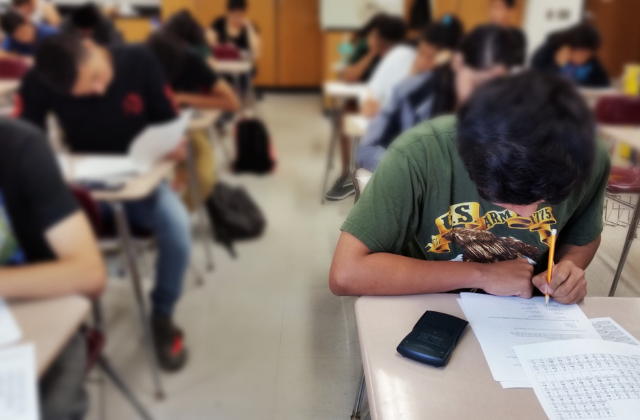The University of California school system in May announced plans to officially eliminate standardized test scores in its admission process. The problem with that, argues author Caitlin Flanagan in a piece published by The Atlantic, is that the decision actually hurts the very people it’s expected to help.
Flanagan says that, although it is commonly believed that “standardized tests discriminate against low-income Black and Latino students,” the real culprit is underfunded high schools. The state has “consigned its most vulnerable students to some of the worst K–12 schools in America,” she says. Students now must rely on their GPA to get into a UC school, but many don’t realize that “the biggest barrier to getting into the University of California” is the GPA and not the SAT. In order “to be eligible,” Flanagan writes, “[students] must complete a series of 15 college prep classes called the A-G requirements.” Most underfunded schools, however, don’t even offer all of the A-G requirements.
Flanagan explains:
There was a loophole these students could use—a Hail Mary option for smart kids who, for whatever reason, didn’t do well in high school or did well but not in the A-G classes—and it involved test scores. In 2018, about 22,000 students “tested in” to the UC, meaning their high SAT scores compensated for low GPA. Almost half of those students were low-income, and more than a quarter were Black, Latino, or Native American. The UC has now taken this lifeline away.
Referencing a report by the Academic Council’s Standardized Testing Task Force (STTF), Flanagan says research shows that “the obvious challenges faced by low-income Black and Latino students were poverty and poor K–12 education. And they found that the UC’s use of standardized tests did not amplify racial disparities.”
The writer believes UC admissions officials eliminated standardized tests because they “would much rather do something that seems to promote ‘equity’ than make an evidence-based choice that could lead to accusations of racism.”
Flanagan believes that this decision was made in order to “give cover to the many forces invested in not improving the state’s K–12 education, especially in the poorest districts.”
“Those include: Republicans, who don’t like pouring money into public education; taxpayers, who don’t like their dollars being spent on other people’s children,” Flanagan says. “[And] Democrats, who serve the teachers’ unions; and the mighty unions themselves, which seem more interested in protecting failing teachers than in reforming a failing system.”
